Better Days (2019): one of the best movies I've seen this year | de las mejores películas que he visto este año

Nominada al Oscar a Mejor Película Internacional
Since I really like international cinema, one of my favorite categories at the Academy Awards is Best International Film (previously called Best Foreign Film) because even though only five stories make it to the gala night, the pre-selection includes almost a hundred films from different corners of the world that serve as a window to see beyond the borders of Hollywood. That's how I came across this film and what I can't forgive myself for is that several years have passed since I added it to my list until last night when I was finally able to see it thanks to the fact that it's available on MUBI.
Como me gusta mucho el cine internacional, una de mis categorías favoritas en la entrega de los premios de la Academia es la de Mejor Película Internacional (antes llamada Mejor Película Extranjera) porque aunque apenas llegan cinco historias a la noche de la gala, la pre selección incluye casi un centenar de films provenientes de diferentes rincones del mundo que sirven de ventana para ver más allá de las fronteras de Hollywood. Así llegué a esta película y lo que no puedo perdonarme es que hayan pasado varios años desde que la agregué a mi lista hasta anoche cuando finalmente la pude ver gracias a que está disponible en MUBI.
Shao nian de ni (Better Days) is a Chinese film directed by Derek Tsang and written by Lam Wing-Sum, Li Yuan and Xu Yimeng that tells the story of Chen Nian, a high school senior who finds herself in the middle of three complicated situations. The first of these is the imminent arrival of the Gaokao, which are the university entrance exams. In Chinese society, this event is highly revered and students are educated to excel, to succeed in gaokao and thus be able to carve out a future among the best. Whether or not you succeed in gaokao can determine the rest of your life, so it's a time of great pressure for the more than thirteen million young Chinese who take the exam year after year. It's such an important celebration that it almost paralyzes the entire country for a couple of days. On the other hand, there is the issue of maternal absence. Nian's mother runs shady businesses and has to spend long periods away from home, so the girl has to fend for herself, as she has no siblings and her father is nowhere to be found. And last but not least, there's the issue of school bullying, the excessive abuse by young students that leads, at the beginning of the film, to the suicide of a student in Nian's class and that, after a series of events, focuses on her as the new victim of harassment. These three narrative lines come together in Chen Nian who will do everything possible to bear this great tension.
Shao nian de ni (Better Days) es una película china dirigida por Derek Tsang y escrita por Lam Wing-Sum, Li Yuan y Xu Yimeng que cuenta la historia de Chen Nian, una estudiante del último año de secundaria que se encuentra en el centro de tres situaciones complicadas. La primera de ellas es la inminente llegada del Gaokao, que son los exámenes de ingreso a la universidad. En la sociedad China se rinde mucho culto a esta instancia y se educa a los estudiantes para que sobresalgan, para que triunfen en gaokao y puedan así labrarse un futuro entre los mejores. Triunfar, o no, en gaokao, puede condicionar del resto de tu vida, así que es un momento de mucha presión para los más de trece millones de jóvenes chinos que presentan el examen año tras año. Es una celebración tan importante que casi paraliza a todo el país durante un par de días. Por otro lado, está el tema de la ausencia materna. La madre de Nian realiza negocios de dudosa procedencia y tiene que pasar largas temporadas fuera de casa, así que la chica tiene que valerse por sí misma, pues no tiene hermanos y su padre tampoco figura por ninguna parte. Y finalmente, pero no menos importante, está el tema del bullying escolar, los abusos desmedidos de los jóvenes estudiantes que llevan, al inicio de la cinta, al suicidio de una alumna del curso de Nian y que, después de una serie de acontecimientos, se centran en ella como nueva víctima de acoso. Estas tres líneas narrativas confluyen en Chen Nian que hará lo posible por soportar esa gran tensión.
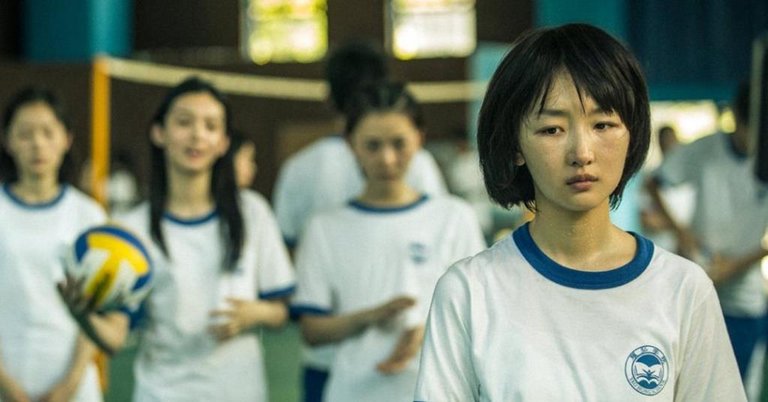
Nian wants to do well in her exams, go to a good university in Beijing, take her mother there, offer her the chance of an honest job and leave behind the miserable life they both lead. But the increasingly excessive bullying from some of her classmates prevents her from concentrating on her studies, since she has to worry, rather than studying, about surviving in a hostile environment. The bullying has been reported ad nauseam, but it seems that it has not been enough and although the things that Chen Nian suffers may seem exaggerated to us, the truth is that sadly they are more common than we would like to admit.
Nian quiere slir bien en sus exámenes, irse a una buena universidad en Beijing, llevarse allí a su madre, ofrecerle la posibilidad de un trabajo honrado y dejar atrás la miserable vida que llevan ambas. Pero el bullying cada vez más desmedido de parte de algunas compañeras de clases, le impiden concentrarse en sus estudios, ya que tiene que ocuparse, más que de estudiar, de sobrevivir en un entorno hostil. El bullying se ha denunciado ya hasta el cansancio, pero parece no haber sido suficiente y aunque las cosas que sufre Chen Nian nos puedan parecer exageradas, la verdad es que tristemente son más comunes de lo que nos gustaría admitir.
Without siblings, parents, or a classmate to support her in the face of others, Chen Nian finds herself alone, at the mercy of her victims, until chance brings her to meet Liu Beishan, a young homeless criminal who has forged a life of poverty and street fights and who offers to protect her. In this way, a relationship will arise between the two that will evolve to circumstances that were unsuspected at the beginning of the film, but which are summed up very well in the following scene: Chen Nian tells Liu that she wants to go to university, become an adult, do something for others, and protect the world. It is then that Liu offers her a deal: "You protect the world. And I'll protect you." Given everything they have to face together, this is one of the most romantic proposals I've seen in the movies lately. It's true that the film is a bit melodramatic, but it also has great power, a lot of force and moments of great action that help to balance the script and its emotional charge. And it is there, I believe, where the strength and beauty of this story resides, in that mix of human emotions embodied by two teenagers who experience guilt, resentment, love, friendship, tenderness, despair, sadness, defeat, redemption, sacrifice, nobility, solidarity and who manage to instill these emotions in the viewer who will find himself shedding a couple of tears in more than one scene.
Sin hermanos, sin padres y sin un compañero de clases que la apoye frente a los demás, Chen Nian se encuentra sola, a merced de sus victimarias, hasta que el azar la lleva a conocer a Liu Beishan, un joven delincuente que vive en la calle, que se ha forjado entre la miseria y las riñas callejeras y que se ofrece a protegerla. De esta manera surgirá entre los dos una relación que irá evolucionando hasta circunstancias insospechadas al inicio de la película, pero que se resume muy bien en la siguiente escena: Chen Nian le cuenta a Liu que ella quiere ir a la universidad, gaduarse, hacer algo por los demás y proteger al mundo. Es entonces cuado Liu le ofrece un trato: "Tu protege al mundo. Y yo te protejo a ti". Dado todo lo que tienen que enfrentar entre ambos, se trata de una de las propuestas más románticas que he visto últimamente en el cine. Es cierto que la película es un poco melodramática, pero posee también una gran fuerza, mucha contundencia y momentos de mucha acción que ayudan a equilibrar el guión y su carga emocional. Y es allí, creo yo, en donde residen la fuerza y la belleza de esta historia, en esa mezcla de emociones humanas encarnadas por dos adolescentes que experimentan culpa, rencor, amor, amistad, ternura, desesperación, tristeza, derrota, redención, sacrificio, nobleza, solidaridad y que logran infundir estas emociones en el espectador que se encontrará a sí mismo derramando un par de lágrimas en más de una escena.

Better Days has a great script, a very good soundtrack, a cinematography that works perfectly and a great emotional charge, but if the film is what it is and got where it did it was mainly thanks to the performances of Jackson Yee as Liu Beishan and above all, to that of Zhou Dongyu as Chen Nian. The interpretive strength, the emotional spectrum, the handling of gestures, the performance of Zhou - who was over twenty-five years old when she played Chen Nian - is incredible and it's thanks to her that the young student comes to life on screen as a conflicted, complex, but above all alive and at all times empathetic character.
Better Days tiene un gran guión, muy buen soundtrack, una fotografía que funciona a la perfección y una gran carga emocional, pero si la película es lo que es y llegó a donde llegó fue, principalmente, gracias a las actuaciones de Jackson Yee como Liu Beishan y sobre todo, a la de Zhou Dongyu como Chen Nian. La fuerza interpretativa, el espectro emocional, el manejo de los gestos, la actuación de Zhou - quien tenía más de veinticinco años cuando encarnó a Chen Nian - es increíble y es gracias a ella que la joven estudiante cobra vida en pantalla como un personaje conflictuado, complejo, pero sobre todo vivo y en todo momento empático.
The failure of the police to intervene in bullying issues in schools, coupled with poor management supervision, the silence of the victims, and a demanding school climate in which studies and especially university admission (through the gaokao) determine your future, can be seen as the failure of a system that treats its young people as cogs in a machine and not as the human beings they are. The stress generated by learning, the glorification of academia, the sacrifice of individual well-being and the pursuit of honouring parents, school and country through exams can be a heavy weight on the shoulders of fifteen or sixteen year olds. But in the midst of it all, Nian found Liu and he found her. Two beings who at first glance are very different, but who deep down are two sides of the same coin (the coin is the failure of the system) and who live and support each other with great intensity at the moment when they need each other the most. Better Days is a psychological drama, a school story, a denunciation of bullying, a police thriller, a teenage romance, but above all it's an excellent film that, although it comes from Asia, does not have the authorial stamp that foreign productions usually have, but rather it is a little more similar to the Western style, making it more accessible to the most traditional followers of Hollywood cinema. Without a doubt, one of the best films I have seen this year. Have any of you seen it yet? I'll read you in the comments.
La imposibilidad de intervención por parte de la policía en temas de bullying dentro de los colegios, sumado a la poca supervisión directiva, al silencio de las víctimas, a un clima de exigencia escolar en el que los estudios y sobre todo el ingreso a la universidad (a través del gaokao) determinan tu futuro, puede verse como el fracaso de un sistema que trata a sus jóvenes como piezas en una maquinaria y no como los seres humanos que son. El estrés que genera el aprendizaje, la glorificación de la academia, el sacrificio del bienestar individual y la persecución de rendir honores a los padres, al colegio y al país a través de unos exámenes puede ser mucho peso sobre los hombros de jóvenes de quince o dieciséis años. Pero en medio de todo ello, Nian encontró a Liu y él la encontró a ella. Dos seres que a primera vista son muy diferentes, pero que en el fondo son las dos caras de una misma moneda (la moneda es el fracaso del sistema) y que viven y se apoyan con gran intensidad en el momento en que más se necesitan el uno al otro. Better Days es drama psicológico, historia escolar, denuncia contra el bullying, thriller policíaco, romance adolescente, pero sobre todo es una excelente película que si bien procede de Asia, no tiene tanto el sello de autor que suelen tener las producciones extranjeras, sino que se parece un poco más al estilo occidental, haciéndola más accesible para los seguidores más tradicionalistas del cine de Hollywood. Sin duda alguna, una de las mejores películas que he visto este año, ¿alguno de ustedes ya la ha visto? Los leo en los comentarios.
Reseñado por @cristiancaicedo
Other posts that may interest you | Otros posts que pueden interesarte:
 |
|---|
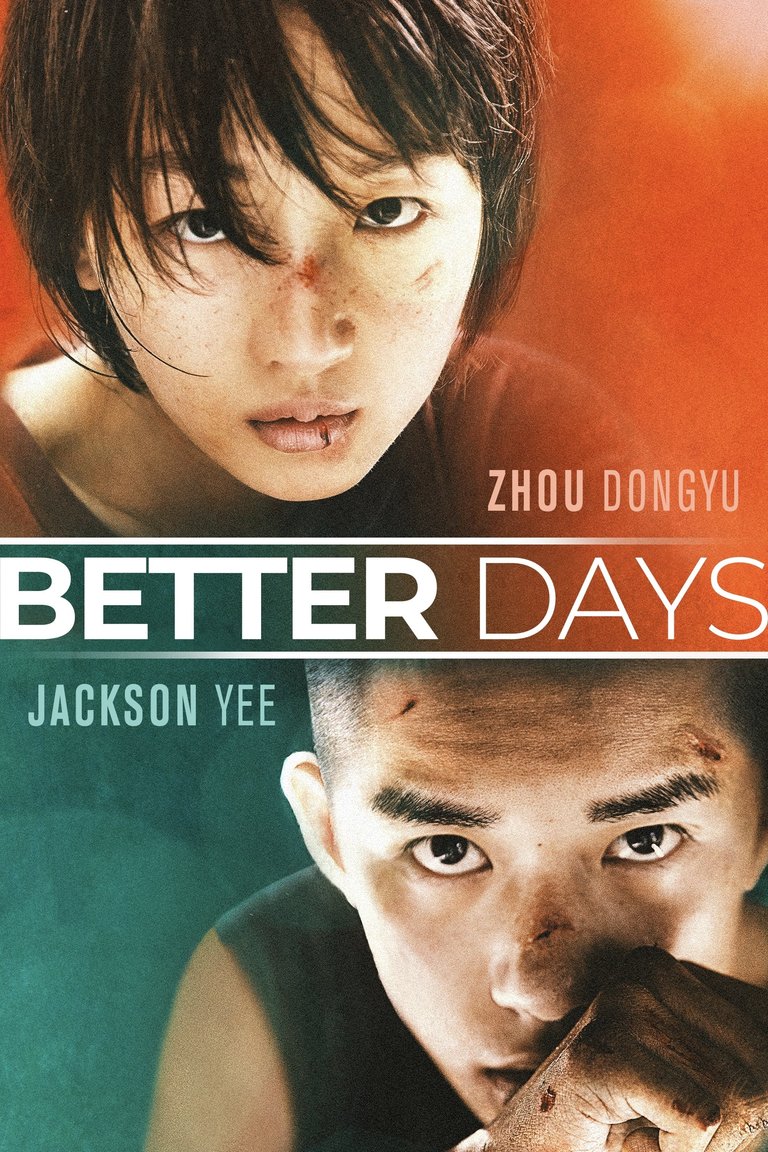
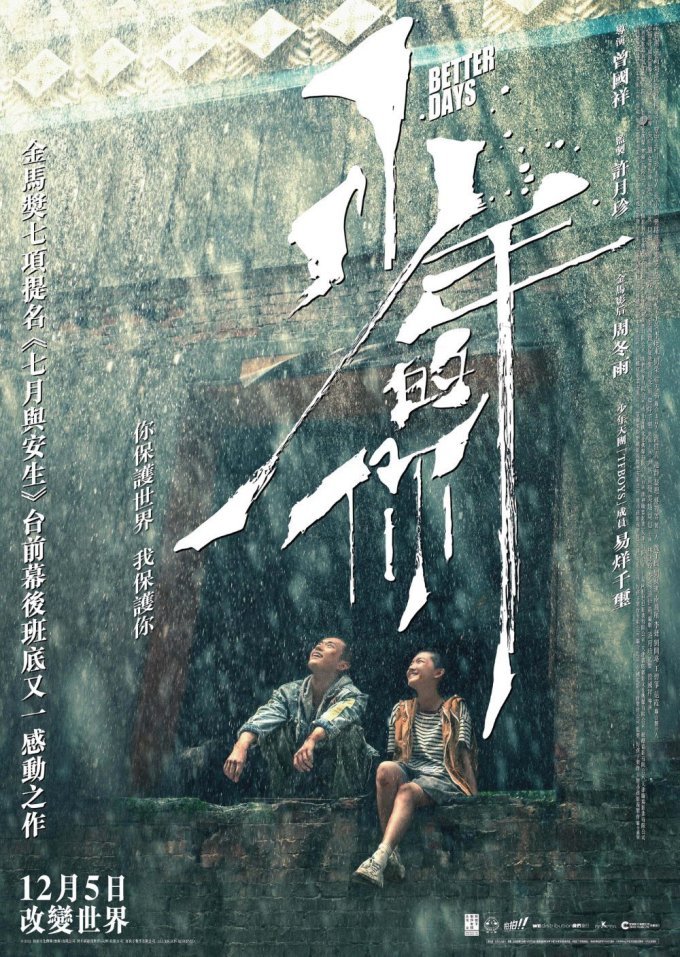
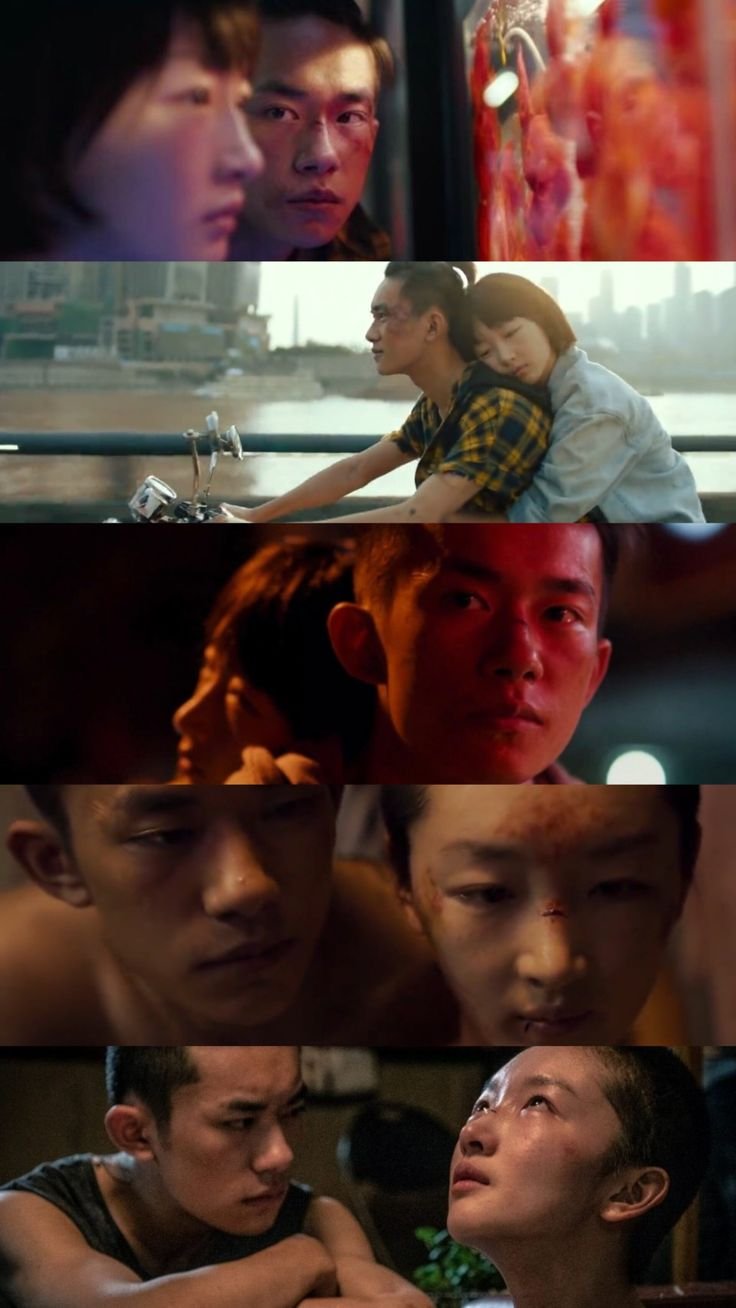
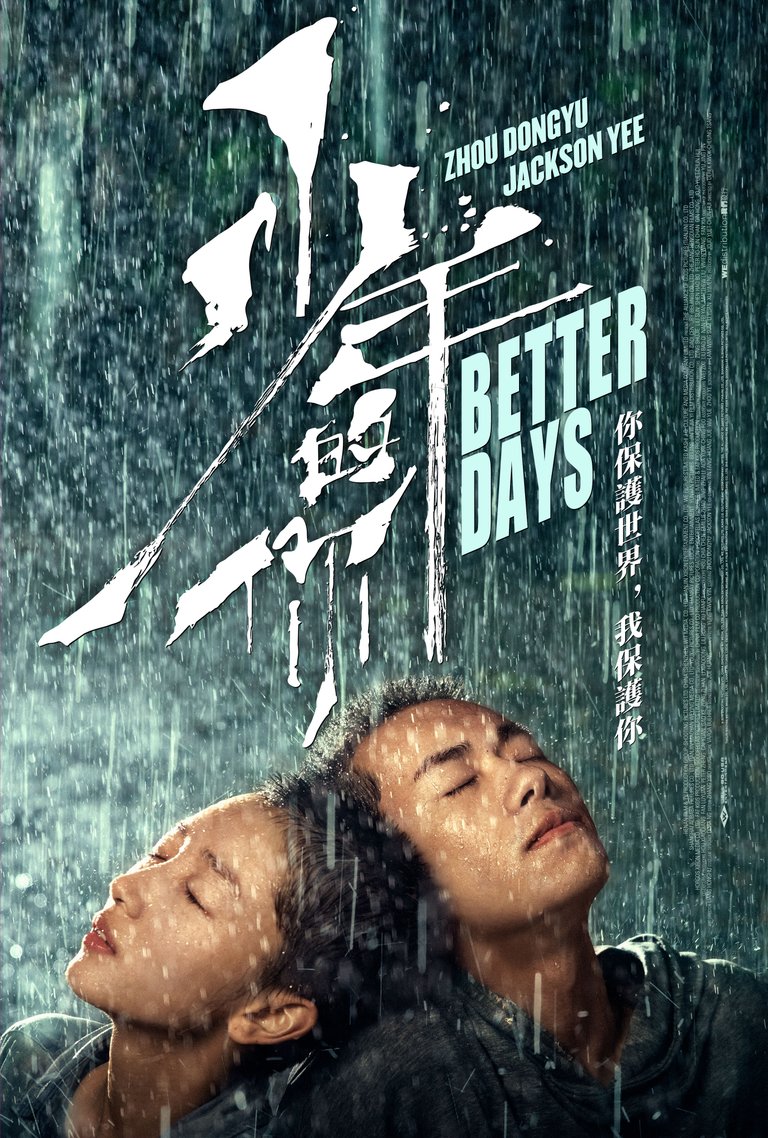
Congratulations @cristiancaicedo! You have completed the following achievement on the Hive blockchain And have been rewarded with New badge(s)
Your next target is to reach 8000 upvotes.
You can view your badges on your board and compare yourself to others in the Ranking
If you no longer want to receive notifications, reply to this comment with the word
STOPI saw this one a while back, reviewed it here too. It was interesting to see the joint efforts from the government to create a film against bullying, quite an odd thing to see from China.
I didn't know that about the government and even when I don't remember you review I'm almost sure I saw it. Your recommendations (and the ones by @jcrodriguez) are always on point. Than you for reading.